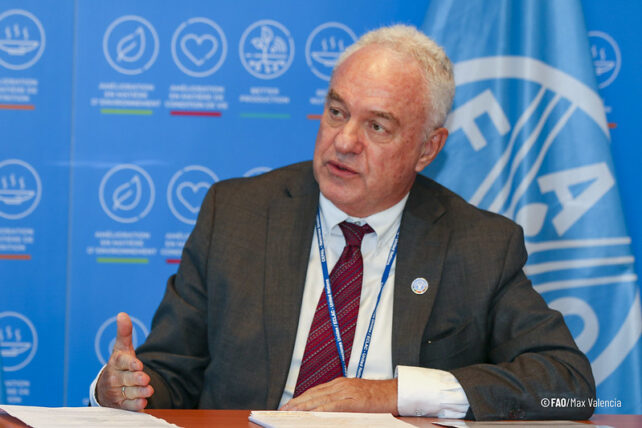
The climatic phenomenon known as “El Niño” is intensifying its presence worldwide. Projections are not favorable for the countries of the region. Below-normal rainfall is expected in Honduras, Guatemala, El Salvador, Nicaragua, northern Venezuela, Colombia, Bolivia, inland Peru, Guyana, and Suriname.
In addition, above-normal precipitation is projected for the northern coast of Peru and Ecuador associated with the “El Niño Costero” phenomenon. If production decreases due to El Niño, there will be less food availability, and the income of the most vulnerable households that live and eat on what they produce will be reduced.
In case of rainfall deficit, food security will be affected, reducing the cultivated area, with effects on harvests and increased death, malnutrition, and diseases in livestock.
On the other hand, excess rainfall associated with El Niño will also lead to crop failure. It will also deteriorate soils, cause death and disease in animals, and damage key infrastructure. It is critical to act now to reduce potential humanitarian needs. Protecting agriculture will directly impact food security and help prevent the escalation of food crises in the region.
Meeting this challenge requires a robust strategy that addresses risks in the broader context of global climate change.
FAO is implementing proactive actions to reduce potential humanitarian hardship in
Honduras, Guatemala, Nicaragua, and El Salvador in the Dry Corridor in Central America.
These actions include support for water management, storage, and harvesting; micro-irrigation systems; safe seed storage systems; use of resistant varieties; prophylaxis and livestock feed, among others. In this way, we have protected the 2023 post-harvest agricultural season. A similar program will soon be initiated in Bolivia, Venezuela and Colombia.
In Ecuador, we will be supporting the implementation of drains and mechanisms to evacuate excess water from crops and prevent landslides, as well as providing equipment for seed and crop conservation, conservation of artisanal fishing production, and facilitating vaccination for livestock to mitigate the effects of El Niño Costero.
FAO recently launched a response plan to raise US$36.9 million to assist vulnerable communities in Latin America. The initiative, announced as part of Humanitarian Assistance Month, aims to support 1.16 million people in Bolivia, Colombia, Ecuador, El Salvador, Guatemala, Honduras, Nicaragua, Peru and Venezuela.
Without these efforts to reduce risk and act early, there will be a perpetual need for urgent humanitarian action and a growing risk of deterioration into new emergencies.
With a more coordinated effort by international organizations, governments, the private sector, regional organizations, civil society, and communities, we can cope with events like El Niño and better protect livelihoods and food security, leaving no one behind.

Why don’t they just take the excess rainfall from one place and put it in the place with the deficit. These people are supposed to be smart